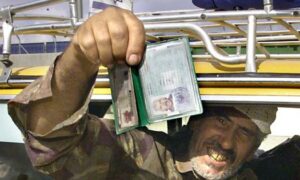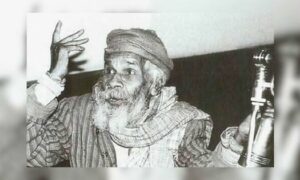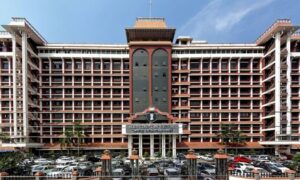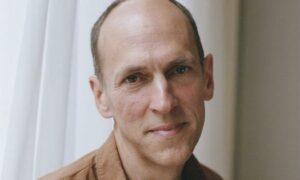The central tenet of human rights law is that all rights are universal, indivisible, interlinked, and inalienable. They are complimentary, with the implicit assertion that the fulfilment of one right does not mean infringement of another right. That sounds fine in principle, but once we begin to examine it, we uncover dilemmas and challenges, and discover that we are caught between Scylla and Charybdis – where protection from one harm greatly increases another harm.
The Scylla here is unrestrained speech intended to challenge, cast fresh light, even provoke, but also to shock and disturb, and at times, even disgust; the Charybdis is the principle of non-discrimination which calls upon regulators, governments, owners of social media platforms, and human rights practitioners to do all they can to protect vulnerable groups from abusive language that violates their rights to privacy, security, and safety, and indeed, their legitimate desire for justice.
Balancing the two is not easy.
Unrestrained free speech can spread lies and propaganda, otherwise popularly termed as fake news, incite violence against marginalised groups, strengthen the hands of those who wield power, and create a climate that permits injustice to prevail. The most potent tool against power is speech.
Many countries in the Asia-Pacific region have been colonised, and anti-colonial struggles have been led by leaders who used their freedom of expression to rouse their people against imperialism and were accused of sedition by colonial rulers or generals – leaders such as José Rizal in the Philippines, Mohandas Gandhi in India, Soekarno in Indonesia, Lee Kuan Yew in Singapore, Sheikh Mujibur Rahman in Bangladesh and Aung San Suu Kyi in Myanmar, among many others. And yet, many of them, or their political successors, imposed severe restrictions on freedom of expression, behaving exactly like the colonial powers did. Those deprived of power – the poor, the indigenous, the vulnerable, the minorities – remained struggling for social justice.
One form of tyranny was replaced by another when Mujibur Rahman banned opposition parties, the Congress declared the Emergency in India, Lee’s Singapore jailed dissidents, Aung San Suu Kyi became an apologist of the Tatmadaw, or the Myanmar army which had once jailed her (and done so again), and Ferdinand Marcos, who described himself as a resistance fighter against the Japanese rule in the Philippines, and ended up declaring martial law as president.
Almost all countries in Asia are no longer colonies, although some are denied sovereignty and many have constitutional guarantees permitting some levels of freedom of expression. And yet, many have continued to use colonial-era laws to stifle democratic dissent, and in some instances, made those laws more harsh, even using them against human rights and environmental rights defenders, who speak for the dispossessed.
Asian societies are rooted in ancient traditions which often clashed with modern understanding of human rights, layered by colonial legacies which placed order above debate, and shaped by rapid modernisation and technology promising greater access but creating surveillance states. They face a complex paradox: the simultaneous aspiration for dignity and the suppression of the very freedoms that can enable justice to thrive. Central to this tension is the relationship between social justice, human rights, and freedom of expression.
Social justice is intertwined with an unwavering commitment to human rights. And freedom of expression is the enabling right through which those seeking justice can articulate their demands and grievances. It enables the vulnerable to speak, the wronged to be heard, and the powerful to be held accountable.
Yet, across Asia, freedom of speech is routinely curtailed, often under the pretext of maintaining harmony, law and order, or national security. While it is important to protect the right to free expression, in the age of the Internet, which allows falsehoods and hate speech to spread far and wide quickly, it is equally important to strike a principled balance, by recognising the risks of unrestrained speech.
At the heart of demands for social justice is the need to dismantle entrenched inequities – of class, gender, caste, ethnicity, religion, and sexuality or sexual orientation. When some voices are elevated and permitted to use the megaphone while the voices of those that they wish to suppress are struggling to get a word in, injustice multiplies.
Think of Sri Lanka, where the decades of conflict between the Sinhalese majority and Tamil minority were exacerbated by the state’s disregard of Tamil aspirations and refusal to allow meaningful expression of Tamil grievances. There were restrictions on speech, press freedoms were curtailed, and those advocating for Tamil rights were branded as threats to national security. The denial of dialogue led to violence and an exceptionally bloody war that divided the Sri Lankan society.
Censorship is an oft-used tool in order to preserve social harmony and traditions. The lèse-majesté laws of Thailand not only criminalise criticism of the monarchy, but given the monarch’s central role and links with the military, make it harder to criticise the establishment. Minor offences are prosecuted, with the threat of prolonged detention. Pro-democracy student activists in 2020 were arrested for merely questioning royal expenditure at the time of growing inequality. Such laws protect the privileged royals by exempting them from accountability while institutionalising inequality.
In Indonesia, it is the blasphemy law which has been used to control free speech that has hurt minorities. The 2017 conviction of Jakarta’s former Christian governor, Basuki Tjahaja Purnama (Ahok), for allegedly insulting Islam, showcased how religious sensitivities – amplified by political opportunism and digital misinformation – can silence influential progressive minority voices.
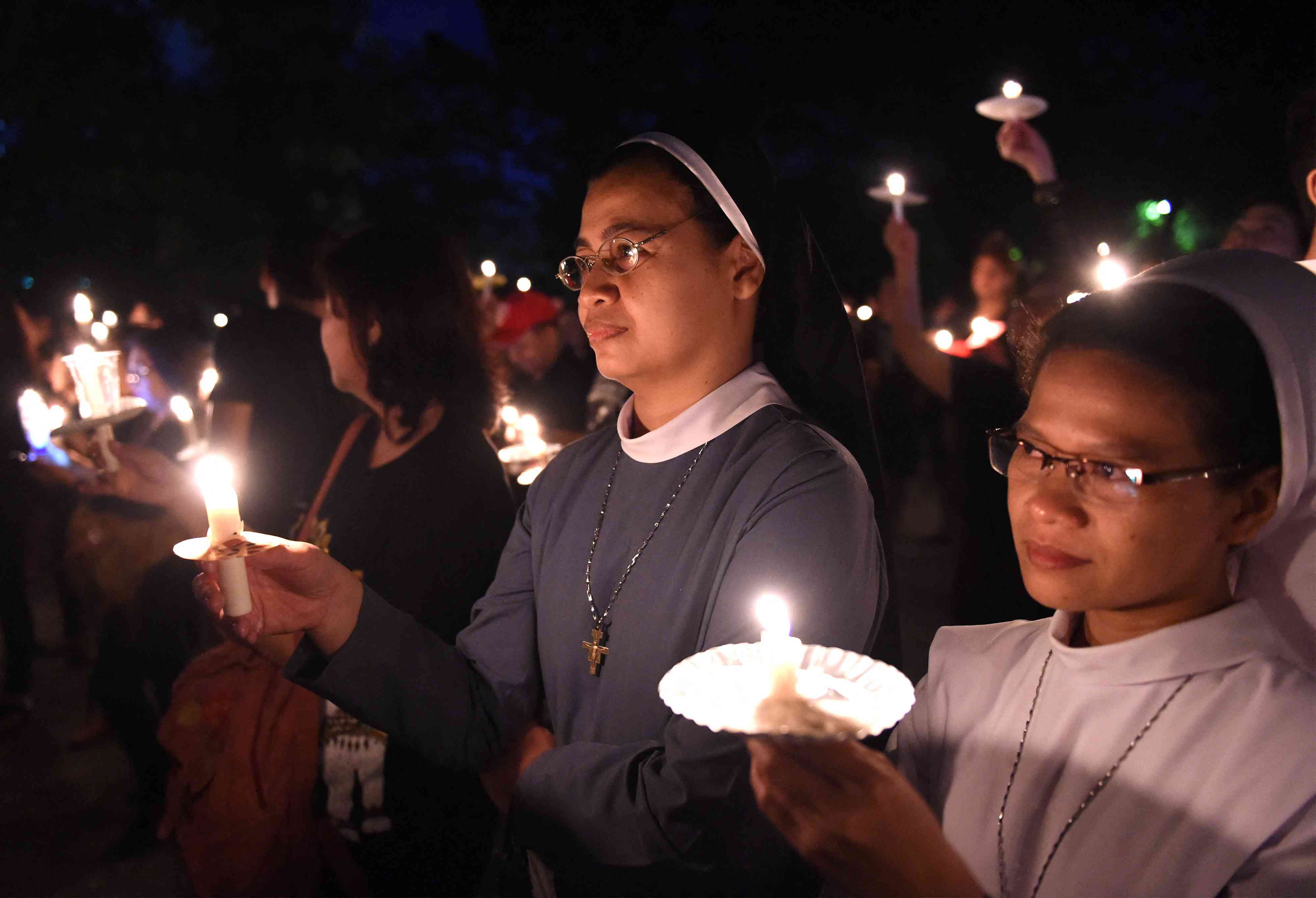
China offers another example. The crackdown on the Uyghur community in Xinjiang, and prevention of any form of social auditing of factories manufacturing products for international markets (which could verify allegations of the use of forced labour), China has not only disempowered a minority; it has also perpetuated inequity. In 2021, prominent Uyghur intellectual Ilham Tohti was sentenced to life in prison for advocating separatism, when all he sought was peaceful dialogue and respect for disenfranchised minorities.
India offers a classic example of a society that brought about political change peacefully – its freedom struggle, led by Gandhi, was non-violent – and embraced a liberal constitution. But its successive governments, regardless of the party in power, have curbed dissent, sometimes ruthlessly.
In recent years, standup comics have faced legal charges, and journalists inquiring into instances of caste-based discrimination are arrested. Anti-terror laws have been deployed with increasing frequency, and the Booker Prize-winning novelist Arundhati Roy who is critical of India’s rule in Kashmir and its neoliberal economic policies, was threatened with a sedition charge. Foreign academics or critics are denied entry into India.
In 2022, UK-based anthropologist Filippo Osella, who has studied coastal fishing communities of the southern state of Kerala, was deported from the airport, even though he had a valid research visa for his visit. In 2020, Indian journalist Siddique Kappan was arrested while he was on his way to Hathras, a town in north India, to investigate a case of gang rape and murder of a Dalit woman. The government claimed Kappan was going to incite violence.
This is not to suggest that unregulated speech is always and inevitably good. Societies riven by deep cultural or historic divisions have often seen unrestrained speech inciting or fomenting violence. Myanmar offers a good example. In the years leading up to the mass atrocities against the Rohingya community in 2017, the social media platform Facebook in Myanmar had become a sea of hate speech directed at Rohingya; some of the inflammatory pages were run by the military. Ultranationalist Buddhist groups such as Ma Ba Tha used the platform to spread misinformation, including false claims of Muslim plots to overrun Buddhist society, and distributed fake images of dead monks. These narratives stayed unchecked and went viral, creating an environment ripe for violence. The United Nations took notice and criticised the company for playing a role in spreading hatred.
Likewise, the instant messaging service WhatsApp was weaponised in India as unsubstantiated rumours about child abductions and beef consumption were spread through the medium, leading to many cases of lynch mobs attacking or killing people. Unchecked speech in profoundly divided societies reinforces prejudices, with real-world consequences.
Even the most liberal constitutions grant states the right to curb speech in certain instances – when there is clear and present danger of imminent violence, or when child pornography is distributed, or specific groups and protected categories are vilified. Regulating harmful speech is not inherently illiberal; the challenge is: how to do it without infringing rights? The International Covenant on Civil and Political Rights (ICCPR), to which many Asian nations are parties, permits restrictions on speech that incites hatred, threatens public order, or harms others’ rights. However, these restrictions must be legal, necessary, and proportionate (and in some instances, geographically restricted or time-bound).
Consider South Korea. While the country retains defamation laws, these laws are debated and challenged in courts, and a vibrant civil society ensures accountability. Between 2018 and 2020, South Korea had to grapple with the “Nth Room” sexual exploitation case, when the app Telegram was used to sell sexually exploitative videos, and the victims were blackmailed. Its online harassment laws showed how it was possible to protect the affected without stifling broader freedoms. In contrast, in Pakistan, cybercrime laws have been used to harass LGBTQI+ individuals, but hate speech targeting them by religious fundamentalists has been ignored. Such regulation serves the powerful, not the powerless; it undermines justice.
Independent institutions, judicial oversight, and active civil society participation are the cornerstones to protect rights. A justice-oriented speech ecosystem cannot exist without free media and vibrant civil society. But the picture Asia presents is dismal.
In Hong Kong, the National Security Law in 2020 gutted the territory’s independent media. The closure of the feisty Apple Daily and arrest of its editor Jimmy Lai marked a dramatic regression in speech rights and has had a chilling effect on civil society. Again in Bangladesh, editors and bloggers have faced legal cases and violent retribution for challenging religious fundamentalism or corruption. The murder of several atheist bloggers between 2013 and 2016, coupled with government apathy and the use of the Digital Security Act to silence dissent, show how both state and non-state actors can converge to suppress expression.
But there is hope. In the Philippines, Nobel Laureate Maria Ressa’s work with Rappler reveals how investigative journalism can challenge impunity, even under authoritarian-leaning regimes. Other online publications like Malaysia’s Malaysiakini, India’s Wire, Scroll, and Article 14, and Netra News which reports on Bangladesh, have shown that independent media can continue to play the important role of acting as watchdogs. Other civil society groups in Nepal and Taiwan have also leveraged social media and the law to uphold rights.
Sustaining these efforts will require more than moral courage. Legal protection, public funding for independent journalism, and regional solidarity among rights groups will be even more essential. Without an empowered civil society, freedom of expression will remain a privilege, not a right, serving the comfortable, not the afflicted.
How can Asia aspire to get there?
Amplifying the voices of the marginalised is one way forward. India has seen some success in this regard, through the visibility and popularity of Dalit media collectives like The Dalit Camera and Velivada. Khabar Lahariyan has amplified the voices of rural women from oppressed castes.
Another is to consider examples that draw on Asian traditions. Human rights are not a western construct: Gandhi was fundamentally an Indian; Indonesia’s Pancasila philosophy, Ashoka’s millennium-old edicts, and Confucius’s analects all emphasised principles of dignity, compassion, and equality. Speaking of human rights in Asia does not mean importing a foreign norm; rather, it means recognising the great lessons from Asian traditions which are aligned with universal rights.
Enforcing digital accountability is also crucial. Governments and tech platforms must ensure online safety without overreaching. Taiwan pioneered digital democracy tools to promote participation, and developed transparent governance mechanisms to combat disinformation without censorship.
There is also a great need to equip citizens with critical thinking skills to separate truth from propaganda. Thailand’s Media Literacy Network, Malaysia’s New Naratif’s media initiatives, and Sri Lanka’s youth engagement programmes are steps in the right direction.
Social justice cannot be imposed from above; eventually, it must emerge through dialogue, debate, and dissent. Asia’s social justice movements – from the fight for Dalit rights in India, to pro-democracy protests in Hong Kong and Myanmar, to feminist campaigns in South Korea – have two common themes: the right to speak and to be heard.
Freedom of expression is not merely one right among many – it is the foundational right that allows the rights-holder to seek the realisation of rights, accountability, and justice. When it is curtailed arbitrarily and unjustly, we foreclose the possibility of justice. But when we let it flourish, it can strengthen the marginalised. The choice is not between freedom and fairness, but to recognise that the two must go together.
Asia’s future depends not only on economic growth or geopolitical strategy, but on whether its people can speak their truth without fear. As the Indian poet Rabindranath Tagore wrote, “Where the mind is without fear and the head is held high… into that heaven of freedom, my Father, let my country awake.”
That awakening – of voice, of conscience, of justice – can only come when freedom of expression is not an indulgence for the powerful, but a guarantee for all.
Encouraging a climate without fear requires freedom of speech as well as freedom after speech. For that to happen, those with power or in power, need to listen. As Rizal once wrote: “There can be no tyrants where there are no slaves.” Social justice begins with speech – not only free, but just.
In its absence, there is only silence. That silence is not peaceful: it tries to place a lid on voices bubbling to emerge, seeking justice. In Salman Rushdie’s 1990 novel, Haroun and the Sea of Stories, the Prince of Silence and the Foe of Speech is called Khattam-Shud, and he rules a land called Chup (silence), which has a cult that promotes muteness. It is a land at apparent peace, looking as if it is in harmony. But that outward stability conceals inner fragility. Such societies force their citizens to live a lie: that their contrived cheer and forced harmony are somehow superior.
Open societies appear brittle and frail because outwardly they are cacophonous, where everyone can contradict everyone else, and where nothing is sacred. But that is its inner strength. As Rushdie wrote: “All those arguments and debates, all that openness, had created powerful bonds of fellowship between them… The Chupwalas (those from the silent land) turned out to be a disunited rabble, suspicious and distrustful of one another. The land of Gup (talk) is bathed in endless sunshine, while over in Chup, it is always the middle of the night.”
This article first appeared on Scroll.in
📰 Crime Today News is proudly sponsored by DRYFRUIT & CO – A Brand by eFabby Global LLC
Design & Developed by Yes Mom Hosting

